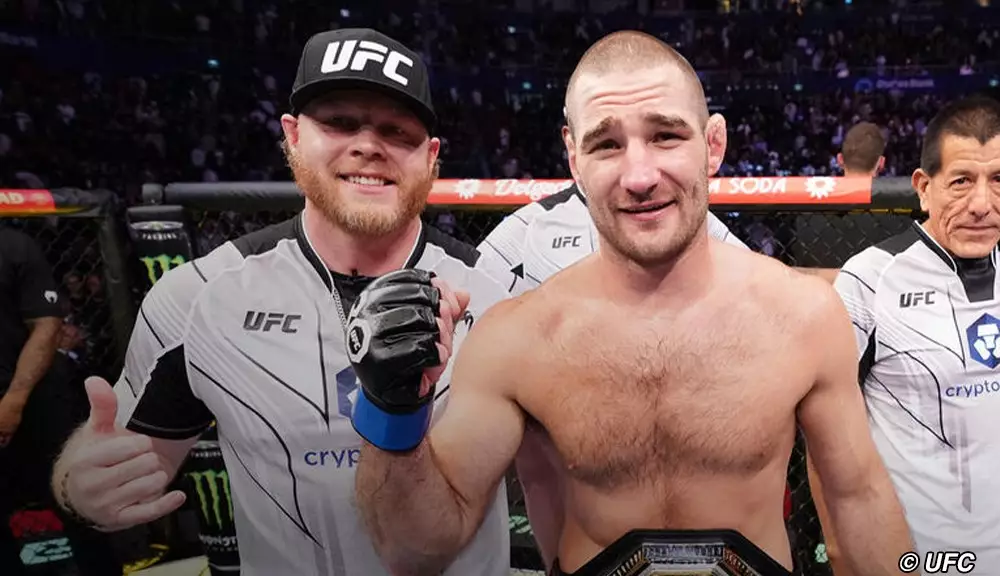In the high-stakes realm of mixed martial arts (MMA), expectations and realities often collide, as evidenced by recent events surrounding Sean Strickland and coach Eric Nicksick after UFC 312. Strickland faced a significant setback, losing to Dricus Du Plessis in a dominant unanimous decision. Nicksick, visibly frustrated by Strickland’s lack of urgency during the match, publicly expressed doubts about his athlete’s commitment to the sport. This sparked a discussion around coaching philosophies and the nature of mentorship in sports.
Daniel Cormier, former champion and current commentator, weighed in on the situation, suggesting that Nicksick’s disappointment, while valid, veered into unrealistic territory. He argued that not every athlete can—or will—become a world champion, countering Nicksick’s assertion of wanting to coach only future champions. Cormier emphasized the importance of recognizing the vast spectrum of fighter capabilities, from aspiring competitors to those who may never reach elite levels. His insights highlight a crucial aspect of athletic coaching: the need for realism balanced with ambition.
Cormier’s perspective sheds light on the intricate dynamics of coaching. He acknowledged Nicksick’s harsh assessment of Strickland’s performance as justified, but questioned the practicality of setting such lofty goals. In a sport where only a select few ascend to championship status, embracing a wider coaching ethos may be essential. Coaches are tasked with nurturing talent at all levels—this includes mentoring underperformers, guiding them toward personal bests, and helping them navigate setbacks. As such, a coach’s role encompasses more than just shaping future champions; it involves fostering resilience, skill development, and, critically, a sense of realistic self-assessment in athletes.
After the fight, Strickland announced that Nicksick would no longer be in his corner, although they intended to maintain their friendship. This notable decision underscores how fiercely competitive environments can strain relationships, even between individuals with shared goals. Cormier found this development perplexing, yet he recognized that every coach must evaluate their fighters honestly. The candidness of such evaluations is essential for growth, yet they can also lead to tensions.
In light of this controversy, the conversation shifts to the implications for both Strickland and Nicksick moving forward. Strickland must consider how best to regroup and refine his approach after a setback, while Nicksick needs to reflect on how his expectations align with the realities of athlete performance. For coaches in MMA, the challenge lies in striking a balance between nurturing potential and maintaining high expectations, which can sometimes clash in the heat of competition. Ultimately, the evolution of a fighter hinges not just on their abilities but on the strength and adaptability of their coaching alliances.

